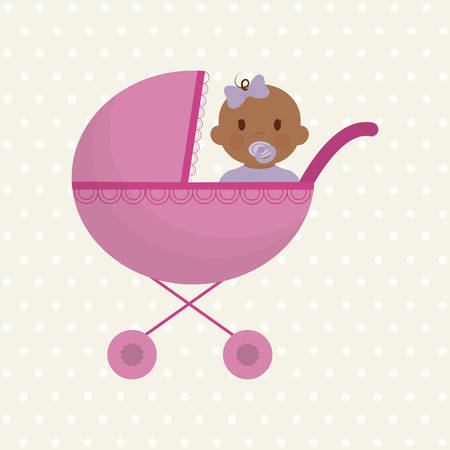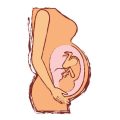Understanding Ear Infections in Babies
Ear infections, medically known as otitis media, are one of the most common childhood ailments, particularly affecting infants and toddlers. These infections involve inflammation and sometimes infection of the middle ear, which is the air-filled space behind the eardrum. The prevalence of ear infections in early childhood can be attributed to several anatomical and developmental factors unique to babies. During infancy, the Eustachian tubes—which connect the middle ear to the back of the throat—are shorter, narrower, and more horizontal compared to older children and adults. This makes it easier for bacteria or viruses to travel from the throat to the middle ear, leading to infections.
Common Causes of Ear Infections in Infants
| Cause | Description |
|---|---|
| Bacterial Infections | Often develop following a cold or respiratory infection, as bacteria travel through the Eustachian tube to the middle ear. |
| Viral Infections | Viruses such as those causing colds can also lead to inflammation and fluid build-up in the ear. |
| Allergies | Allergic reactions can cause swelling and fluid retention in the middle ear. |
Why Are Ear Infections So Common in Early Childhood?
The immature immune system of infants makes them more susceptible to infections. Additionally, frequent exposure to other children (for example, in nurseries or playgroups), bottle-feeding while lying down, and environmental factors such as tobacco smoke can increase risk. Understanding these causes helps parents recognise why their baby might be prone to ear infections and underscores the importance of timely intervention.
2. Recognising the Symptoms
Identifying ear infections in babies can be challenging, as they are often unable to clearly express discomfort. However, there are several key signs and symptoms that parents and caregivers in the UK should be aware of. Early recognition is vital for prompt treatment and to minimise complications. The following table outlines common symptoms and when it may be necessary to seek further medical advice:
| Symptom | Description | When to Be Concerned |
|---|---|---|
| Ear tugging or pulling | Your baby may frequently pull or rub their ear, indicating discomfort. | If persistent or accompanied by other symptoms. |
| Crying and irritability | Increased fussiness, especially when lying down, could signal ear pain. | If crying is inconsolable or prolonged. |
| Difficulty feeding | Pain during sucking or swallowing may cause your baby to eat less. | If poor feeding leads to dehydration (fewer wet nappies). |
| Trouble sleeping | Your baby may have difficulty settling or staying asleep due to discomfort. | If sleep disturbances persist or worsen. |
| Fever | A temperature above 38°C (100.4°F) can sometimes occur with an ear infection. | If fever is high, persistent, or your baby is under three months old. |
| Fluid or discharge from the ear | Pus or yellowish fluid leaking from the ear canal is a sign of infection. | If discharge is bloody, foul-smelling, or continues for more than 24 hours. |
| Hearing difficulties | You might notice your baby not responding to sounds as usual. | If hearing does not improve after treatment. |
If you observe any of these symptoms, particularly if your baby develops a high fever, appears very unwell, has a stiff neck, fits (seizures), or is unusually drowsy or unresponsive, it is essential to seek immediate medical attention through NHS 111 or by visiting your nearest A&E. Early intervention can help ensure the best outcomes for your child’s health and wellbeing.

3. When to Seek Medical Advice
Recognising when to seek medical support for your babys ear infection is crucial to ensure prompt and appropriate care. The NHS provides clear guidance for parents and carers in the UK on when to contact your GP, health visitor, or call NHS 111. Below is a quick reference table to help you decide on the best course of action:
| Symptom or Situation | Recommended Action |
|---|---|
| High fever (38°C or above in babies under 3 months, or 39°C or above in babies aged 3-6 months) | Contact your GP urgently or call NHS 111 |
| Persistent ear pain or discomfort lasting more than 2 days | Book a GP appointment |
| Pus, blood, or fluid leaking from the ear | Contact your GP promptly |
| Your baby seems very unwell, drowsy, or difficult to wake | Call NHS 111 immediately; if very concerned, call 999 |
| Signs of dehydration (e.g., fewer wet nappies) | Seek advice from your health visitor or GP |
| Symptoms not improving after 3 days or worsening at any time | Contact your GP for further assessment |
| If you are worried about your childs symptoms at any point | Call NHS 111 for reassurance and guidance |
NHS Recommendations for Parents and Carers in the UK:
- GP: Your local GP should be the first point of contact for non-emergency concerns regarding persistent symptoms or discharge.
- Health Visitor: For general advice on caring for your baby during an ear infection, your health visitor can offer support and practical tips.
- NHS 111: This free helpline is available 24/7 for urgent medical advice when you are unsure whether to visit your GP or need out-of-hours support.
Emergency Signs – Call 999 Immediately:
- Your child has difficulty breathing.
- Your baby becomes unresponsive or has a seizure.
Remember, trust your instincts as a parent—if something does not seem right, seek medical attention without delay. Early intervention can prevent complications and ensure the best outcome for your babys health.
4. Treatment and Home Care
When it comes to treating ear infections in babies, the NHS offers clear guidelines to ensure safe and effective care. Most mild ear infections improve on their own within a few days, but knowing when and how to provide treatment is essential for your baby’s comfort and recovery.
NHS-Recommended Treatments
| Treatment Option | Description | When It’s Recommended |
|---|---|---|
| Pain Relief | Paracetamol or ibuprofen, suitable for infants and recommended by your GP or health visitor. | To ease discomfort or fever while the infection settles. |
| Antibiotics | Prescribed by a GP only if symptoms are severe, last longer than three days, or if there is a risk of complications. | For persistent, severe, or recurrent infections as per NHS guidance. |
| Monitoring | Watchful waiting for 72 hours, with regular checks on your baby’s symptoms. | Mild cases without high fever or serious symptoms. |
Effective At-Home Comfort Measures
- Keep Your Baby Upright: Feeding or holding your baby in an upright position can help reduce pressure in the ear.
- Warm Compress: Applying a warm (not hot) flannel gently against the affected ear may provide soothing relief.
- Adequate Fluids: Encourage frequent feeds—breast milk or formula—to prevent dehydration and support recovery.
- Avoid Smoking: Keep your home smoke-free, as exposure to smoke can worsen symptoms and delay healing.
- Monitor Symptoms: Keep an eye on any changes such as increased pain, high temperature, or discharge from the ear, and consult your GP if these occur.
When to Seek Further Help
If your baby becomes very unwell, develops a rash, shows signs of hearing loss, or you notice swelling around the ear, seek urgent advice from NHS 111 or your local GP surgery. Always trust your instincts—if you are concerned about your baby’s health, do not hesitate to get professional support.
5. Preventing Ear Infections
Preventing ear infections in babies is a key concern for parents and carers across the UK. The NHS offers several practical recommendations to help reduce your child’s risk of developing ear infections, focusing on everyday habits and health choices. Below are some essential tips based on NHS guidance and best practices:
Immunisations
Keeping up to date with your baby’s routine immunisations is one of the most effective ways to prevent infections that can lead to ear problems. The UK vaccination schedule includes jabs that protect against diseases like pneumococcus and Haemophilus influenzae type b (Hib), both of which can cause ear infections.
UK Childhood Immunisation Schedule Relevant to Ear Infection Prevention
| Vaccine | Age Given | Protection Offered |
|---|---|---|
| Pneumococcal (PCV) | 8 weeks, 16 weeks, 1 year | Pneumonia, meningitis, ear infections |
| Hib/MenC | 1 year | Meningitis, ear infections |
Breastfeeding
The NHS recommends exclusive breastfeeding for the first six months where possible. Breast milk contains antibodies that help strengthen your baby’s immune system and lower the risk of various infections, including those affecting the ears. Even partial breastfeeding provides benefits if exclusive breastfeeding isn’t possible.
Avoiding Exposure to Smoke
Cigarette smoke is a major irritant that increases the risk of ear infections in young children. Whether at home or in public spaces, make sure your baby is not exposed to tobacco smoke. If you or other caregivers smoke, consider seeking support from local stop smoking services provided by the NHS.
Additional Tips for Reducing Risk
- Encourage good hand hygiene for everyone who handles your baby.
- Avoid bottle-feeding while your baby is lying flat, as this can increase fluid build-up in the ears.
- Keep your child away from people with colds or respiratory infections when possible.
Key Points for Parents
| Prevention Strategy | NHS Recommendation |
|---|---|
| Immunisations | Follow the routine schedule without delay. |
| Breastfeeding | Exclusive for 6 months; continue alongside solids after 6 months. |
| Avoiding Smoke | No smoking around babies or indoors at any time. |
By following these NHS-backed strategies, parents can significantly lower their baby’s risk of developing ear infections and promote overall wellbeing during these vital early years.
6. What to Expect During Recovery
Understanding the recovery process after your baby has been diagnosed with an ear infection can provide reassurance and help you support their return to good health. Most babies begin to feel better within a few days of starting treatment, whether this involves antibiotics or simply symptom management for viral infections.
Typical Recovery Timeline
| Day | What to Expect |
|---|---|
| 1-2 | Your baby may still be unsettled; fever and discomfort can persist. Continue with any prescribed medication and comfort measures. |
| 3-4 | Symptoms should start improving. Less irritability, reduced fever, and increased feeding are positive signs. |
| 5-7 | Most babies are significantly better. Some mild symptoms (like slight ear pulling) may linger but should not worsen. |
| 7+ | If symptoms persist beyond a week, or worsen at any time, seek further advice from your GP or health visitor. |
How to Monitor Your Baby’s Progress
- Fever: Use a thermometer to check regularly. If it persists beyond 48 hours after starting antibiotics, contact your healthcare provider.
- Feeding: Observe if your baby is feeding well—poor feeding may indicate ongoing discomfort or complications.
- Behaviour: Watch for improvements in sleep and mood. Persistent irritability may require follow-up.
- Ear Discharge: Some discharge is common if the eardrum has burst but should gradually lessen. Keep the area clean and dry.
- Hearing: Temporary hearing loss can occur; normal hearing usually returns as the infection resolves.
When to Follow Up with Your Healthcare Provider
The NHS advises parents to arrange a follow-up appointment if:
- Your baby’s symptoms do not improve after 7 days.
- Your baby seems very unwell, develops a rash, or has difficulty breathing.
- You notice swelling around the ear, persistent vomiting, or signs of dehydration (such as fewer wet nappies).
- Your baby experiences repeated ear infections within a short period.
Key Points for Parents in the UK
- The majority of ear infections resolve without complications when managed appropriately at home according to NHS guidance.
- If you are ever unsure about your baby’s progress, contact your GP, health visitor, or NHS 111 for advice specific to your situation.
- Avoid returning your child to nursery until they have been fever-free for at least 24 hours and are feeling better overall.
By staying observant and following recommended care pathways, you can help ensure your baby’s swift and complete recovery from an ear infection while accessing local NHS resources when needed.


